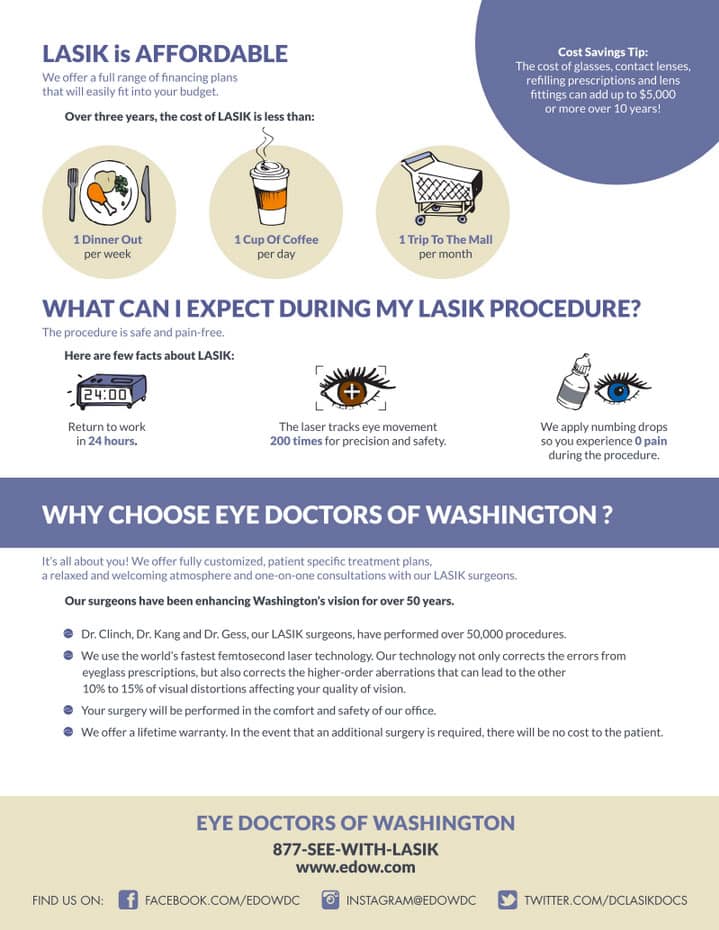The All-Inclusive FAQ On Refractive Lens Exchange: Crucial Information You Need To Know
The All-Inclusive FAQ On Refractive Lens Exchange: Crucial Information You Need To Know
Blog Article
Write-Up By-Lauesen Eskesen
If you're thinking about refractive lens exchange, you probably have a lot of concerns. This treatment might transform exactly how you see the world, using benefits like reduced dependancy on glasses. However, PRK Night Vision Improvement Portland to recognize the process, risks, and who certifies as a great prospect. Let's explore these important facets so you can make an educated decision regarding whether RLE is right for you.
What Is Refractive Lens Exchange and How Does It Function?
Refractive lens exchange (RLE) is a procedure made to change your eye's natural lens with a man-made one, correcting vision problems like nearsightedness, farsightedness, or presbyopia.
During the treatment, your surgeon makes a small laceration in the eye, eliminates your all-natural lens, and inserts an intraocular lens (IOL) tailored to your vision needs. This outpatient surgery commonly takes about 15 to 30 minutes per eye and is done under neighborhood anesthetic.
You'll likely see renovations in your vision practically immediately, though full healing may take a couple of weeks. RLE is particularly valuable for those over 40 or with high prescriptions, providing a long-lasting service compared to glasses or get in touch with lenses.
Your eye care professional can assist identify if RLE is right for you.
What Are the Perks and Threats of Refractive Lens Exchange?
Selecting refractive lens exchange can bring about significant renovations in your vision, but it's important to consider both the advantages and threats prior to choosing.
On the plus side, this treatment can enhance your vision by dealing with problems like presbyopia, myopia, and hyperopia. Several clients enjoy minimized dependancy on glasses or get in touch with lenses, which can considerably improve their lifestyle.
Nonetheless, it's vital to take into consideration prospective risks. Issues can include infection, glare, or halos around lights.
There's additionally LASIK Changed My Life For The Better of overcorrection or undercorrection, which might call for extra treatments.
That Is an Ideal Candidate for Refractive Lens Exchange?
If you're considering refractive lens exchange, it is essential to know whether you fit the account of an excellent candidate. Typically, you may be an excellent prospect if you more than 40, experience presbyopia, or have high degrees of nearsightedness or farsightedness.
It's also critical that your vision is steady, indicating your prescription hasn't changed substantially in the past year. If you have cataracts or other eye problems, you could take advantage of this treatment as well.
However, specific aspects, like uncontrolled diabetic issues or autoimmune illness, can disqualify you. To establish your candidacy, speak with an eye care expert that can review your details situation and recommend the very best course of action tailored to your needs.
Conclusion
In conclusion, refractive lens exchange can be a transformative choice for boosting your vision, particularly if you more than 40 or have a high prescription. While the benefits are substantial, it's vital to weigh the risks and consult with your eye treatment specialist to figure out if you're a perfect prospect. With the best information and support, you can make a notified decision and possibly delight in a life with minimized reliance on glasses.
